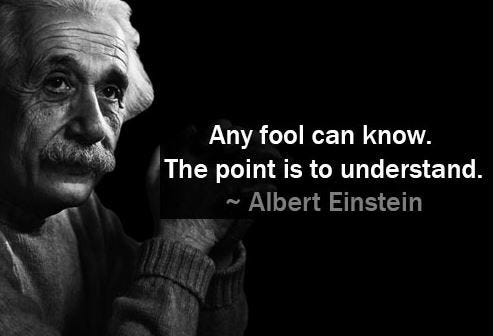“Having knowledge but lacking the power to express it clearly is no better than never having any ideas at all.” Pericles
As if not enough with the ever-expanding universe of new information -perpetually magnified by the proliferation of misinformation and fake news- coupled with an overwhelming access to data, a new era has emerged: the era of ChatGPT, an accessible AI tool for the masses. In a confluence of technologies, it is as if IBM Watson has intersected with Google to blur the lines between reality and illusion, significance and triviality, human and artificial.
It is in this context that a profound assertion arises from Yuval Noah Harari's text "21 Lessons for the 21st Century:”
"In a world deluged by irrelevant information, clarity is power."
The truism that information equals power has profoundly changed in impact… It held valid when available information was limited, access to data was scarce and -very important- censorship methods were very effective in restricting the access to such information.
Fast forward to today, and we confront an altered reality, characterized by an avalanche of information, a flood of data, and an endless torrent of news, editorials, and partisan highly biased viewpoints, many times disguised as objective descriptions or even as facts too.
Brilliantly, Harari unveils a new facet of censorship's efficiency, an intricate web of fabricated facts and misleading information, which achieves its censorship purpose by:
obstructing access to pertinent knowledge, and
simultaneously clouding rational thought, acting as a sort of super-confounder.
In this new epoch, in order to be effective and free one has to be able to focus attention, because it is attention, not information, the most scarce resource we have now. We can’t afford to live in a clouded state of mind, constantly distracted and being robbed of our attention.
Clarity of thoughts directs attention effectively.
Discipline in execution keeps attention in focus.
It is for all of this that being able to think clearly and act strategically are some of the most important intellectual qualities of good leadership.
Why? Because of the constant dynamic of change!
CHANGE
The popular adage insists that "change is the only constant." Whether it stands as the singular constant remains debatable, yet change is undeniably perpetual and, more crucially, central to leadership. Leadership can be well defined as the capacity to bring exceptional talent together, to unlock their potential, to drive exceptional execution, and to unleash transformative change.
Recognizing change as an omnipresent force and a central leadership responsibility grants perspective on a sobering reality: drive change, or be driven by it.
One of the ways of thinking of leadership effectiveness, is to evaluate what position one occupies relative to change: will one steer the ship of change or find oneself lost in its turbulent waters? The trajectory chosen bears profound implications.
CLARITY EMPOWERS
Let us take a moment to reflect on the importance of sifting valuable pearls of wisdom out of the noise we live surrounded with, and to extract insightful information out of the confusing world we live in..
Clarity serves as the compass, pinpointing patterns that signal transformative shifts, and assembling fragments of reality into strategic inquiries. Such clarity is nurtured by emphasizing substance over abundance, allocating dedicated time and space for introspection. As a result, it becomes possible to identify well-defined priorities.
Nonetheless, we tread upon very precarious terrain. We live in an era that present with entire new problems, the decision making process becomes more opaque. This way, the first real risk to consider is not the inability to think clearly, but the impossibility to comprehend what reality is in the first place.
Clarity of thought and clarity of communication are leadership superpowers. While the former untangles strategies from the fog of complexity, the latter simplifies intricate concepts for seamless execution. Both attributes converge as prerequisites to skillfully articulate and navigate the waters of change.
Having knowledge helps you share wise ideas, but it's the ability to think clearly that helps you ask really sharp questions. And this is a key trait of great leaders. They're not famous for being the smartest ones in the room. Instead, they're known for being really good at making smart decisions based on good information.
Leading a team or organization can be tough and sometimes lonely. There's so much urgent stuff that it's easy to forget what's really important. That's why setting aside time to think is crucial. It's like protecting a valuable resource. When you do this for your team, it pays off big time. It helps everyone adjust plans and create the space for innovation.
Knowledge matters, Wisdom creates respect, but Clarity gives power.
P.S. Before I go, here you have “The Treat,” where I share some of the music that kept me company while writing … Enjoy as you bid farewell to this post
Lead yourself, Learn to live. Lead others, Learn to Build.
P.S. If you enjoyed reading this post consider subscribing to this newsletter, joining the community and sharing with someone










Thank you Paula!! We live in interesting times from this perspective! If we don’t rewire how we think about information and critical thinking, we’ll get buried in the fog of confusion
Thank you Minodora! Yes, it is indeed a very important topic! To me one of the most relevant insights is to reflect on how censorship acts in a different way than in the past, but still can be very significant in this era when we feel that we can access everything